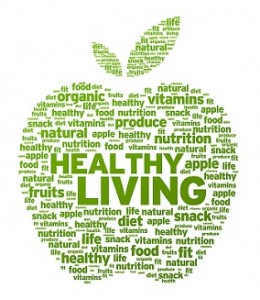This article is courtesy of PRWeb, please share your comments below….
 “Bite into a Healthy Lifestyle” during March’s National Nutrition Month® by working toward consuming fewer calories, making informed food decisions, and participating in a daily exercise routine.
“Bite into a Healthy Lifestyle” during March’s National Nutrition Month® by working toward consuming fewer calories, making informed food decisions, and participating in a daily exercise routine.
March is National Nutrition Month®, an annual nutrition education and information campaign sponsored by the Academy of Nutrition and Dietetics. The 2015 theme is “Bite into a Healthy Lifestyle,” which promotes the consumption of fewer calories, informed food decisions, and daily exercise for achieving and maintaining a healthy weight, reducing risks of chronic diseases and promoting overall wellness.
Whether a person is new to physical fitness activities or a pro, nutrition can seem complicated. Many nutritionists create intense and detailed food regimens for their clients, but a solid nutrition program can be simple and still very beneficial. For those wanting the most from a diet and fitness routine, the following tips may help:
1.Daily balanced diet. For consistent performance at the gym or with a sport, the body needs a regular supply of quality energy for the muscles. A few daily essentials for meeting the body’s needs include: a balanced breakfast; carbohydrates for fuel; and proteins and fats appropriate for a person’s individual body-type and fitness goals.
2.Day of the workout. For those tackling a workout first thing in the morning, be sure to have a light breakfast like fruit, toast, and/or an egg. For those who workout in the evenings, have a lunch that easily digestible but includes complex carbs. Pasta, fruits, vegetables or a salad with lean meat (chicken or fish) are good examples.
3. Immediately prior to workout. About 30 minutes before an intense workout, eat a light to moderate snack and drink some water. The amount of food a person should ingest depends on the length and intensity of their upcoming workout. Longer, harder activities may require the individual to eat an energy bar or large banana.
4.During workout. Necessary hydration varies from person to person, but a good rule of thumb is to intake 8 to 10 fl oz of water every 15 minutes while exercising. For those working out longer than 90 minutes, carbohydrates will likely need to be replenished as well, making a sports drink more of an ideal choice.
5.Post-workout hydration. After a workout, water needs to be replaced in the body according to how much a person has sweated. The more perspiration, the more hydration required. To be absolutely precise, check body weight before and after the physical activity. For every pound decrease, a person should drink about 3 cups of water.
6.Post-workout food. Glycogen stores should be replenished within two hours after an intense workout. Research shows that a 4-to-1 ratio of carbs to proteins is the ideal post-workout nutrition combination. The nourishment can come in the form of solid food, a liquid shake, or a combination of the two.
Medicine in Motion (MIM) specializes in providing top quality sports medicine in Austin, Texas, for athletic individuals of all ages and levels. The staff at MIM believes active bodies are healthy bodies, therefore it is the office’s goal to keep patients energetic and fit. To that end, MIM provides treatment of injuries and illnesses, including the use of physical rehabilitation; promotes healthy living with personal training and nutrition coaching; and offers comprehensive sports medicine evaluations to optimize health, activity level and sports performance. For more information or for questions regarding sports medicine in Austin, contact Medicine in Motion at 512-257-2500 or visit the website at http://www.medinmotion.com.
